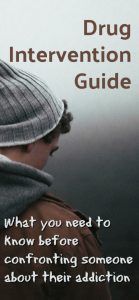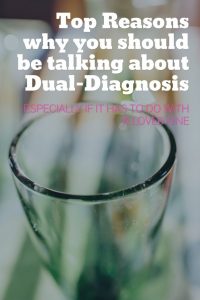Understanding Dual Diagnosis:
Substance Abuse, Combined with Mental Health Issues
When dealing with addiction in some cases substance abuse is the symptom of an underlying mental health disorder and in other cases, substance abuse caused mental health problems. Dual Diagnosis is a term that is often misunderstood.
If a person has a mood disorder such as depression, bipolar disorder (also known as manic depression), or PTSD and has a problem with alcohol and or drugs that person has a Dual Diagnosis. When treating a person with Dual Diagnosis separate treatment plans must be developed as each illness needs its own treatment plan.
Regardless of which came first the depression, addiction or trauma what matters is you treat each and every condition separately. A common mistake by many rehabs is they just treat addiction to alcohol and or drugs.
Dual Diagnosis and Qualifications
Many rehabs don’t have qualified medical staff to properly treat the co-occurring disorders. These are conditions like depression, bipolar, borderline personality, PTSD and or severe trauma. When these mental health issues go untreated in rehab the person seeking treatment will most likely relapse soon after leaving treatment.
Unfortunately, many treatment centers focus on the disease of addiction and not the underlying mental health issues. I cannot stress enough the importance that rehab is picked that has qualified licensed medical staff on site that specializes and can treat any and all of the unique mental health issues of the person seeking treatment.
This is where picking the right treatment center is crucial to a person recovering from addiction and mental health issues.
Dual-Diagnosis and Self-Medication
One of the ways people suffering from untreated mental health conditions become addicted to chemical substances is by self-medicating. This is where the suffering person basically becomes their own doctor.
An overwhelming feeling comes over them that they do not want to feel and they pick up a mind-altering substance and for a brief period of time that substance is the solution to the feeling they do not want to feel.
Unfortunately, the substance they choose to treat their suffering with is an addictive substance that treats only the temporary emotional feeling at that instance and not the underlying condition that is producing the emotional pain. This is the beginning of an addiction to a substance that will never fix the underlying condition.
Two common causes of depression in people seeking treatment are chemical imbalance depression and or situational depression.
Chemical Imbalance and Dual Diagnosis
Chemical imbalance depression most likely will be treated with medications and therapy. Typically a doctor may have to try several medications and monitor the medication levels until the proper level of medication is reached. During the time of the medical evaluation and stabilization, the client should also be getting psychological therapy from a medical professional.
Years of living with a chemical imbalance and years of substance abuse and the trauma that is typically associated with substance abuse require intense treatment.
Many people that suffer chemical imbalance depression prior to coming to treatment have been self-medicating for a long time. Some have never been diagnosed by a proper medical professional where others have been diagnosed and chose to stop taking the medication they have been prescribed.
Consistency and Medication
Typically there are two reasons people stop using prescribed medication for mental health the first is they do not like the side effects of the prescribed medication and turn to an addictive substance that they feel treats the problem better and secondly once the medication starts working they believe they are now fine and quit taking their medication.
Dual-Diagnosis and Side Effects
The most common side effect of some mental health medications is decreased sexual sensation feeling. Many doctors do not explain to their patients about these side effects and the ways to reduce them by trying alternative medications that have recently been developed. That is why it is imperative when a person is being treated medically for chemical imbalance depression they also undergo intense psychotherapy and counseling.
 Most people who enter treatment for substance abuse that have chemical imbalanced depression also suffer from situational depression.
Most people who enter treatment for substance abuse that have chemical imbalanced depression also suffer from situational depression.
Depression
Situational depression is a form of depression that occurs in the aftermath of traumatic changes in your life. These changes can be from financial hardship, loss of a close friend or family member, relationship failure, a victim of abuse and any other unexpected or unwanted life event.
There is always an exception to every rule, however, I believe most of the people that enter substance abuse treatment have some form of situational depression. Even the kindest and loving person when they start abusing alcohol or drugs they inadvertently harm everyone around them without even trying.
Typically family members, employers, and loved ones are fed up with the behavior of someone abusing substances. Abusing alcohol or drugs almost always creates situational depression. Situational depression will usually be treated with psychotherapy. In more severe cases of situational depression, your doctor may treat you with antidepressants and anti-anxiety drugs.
Misconceptions with Dual-Diagnosis
Trauma and depression does not cause substance abuse.
Two brothers in their early teens have both suffered the same severe trauma. A few years later one brother is a depressed, hopeless, alcoholic and drug addict and the other brother is getting a full ride scholarship to a major university.
This is common. It’s not the exception. I have seen cases like this time and time again. One brother has the addictive gene he deals with his trauma and depression by turning to alcohol and drugs. When he takes a drink of alcohol or a drug it stops his emotional pain and shuts off the thoughts racing through his head.
The other brother does not have the addictive gene he tried alcohol and drugs and they only made him feel sick. It did not stop the thoughts racing through his head like his brother so he turned to a psychiatrist who helped him through his depression and trauma.
Untreated Trauma
Trauma and depression left untreated will cause a person with the addictive gene to continue to abuse their substance of choice. Now let’s take the more common case where only one member of the family went through severe trauma and that family member becomes a hopeless addict.
Everyone says “if only that hadn’t happened to Johnny he wouldn’t be an addict”. I have seen this over and over where a family enables an addict (to death in some cases) because they feel bad for the trauma they went through. Trauma cannot make you allergic to peanut butter and trauma cannot give you the addictive gene. To a person with a peanut butter allergy peanut butter can kill them and to a person with the addictive gene alcohol or drugs can be as fatal.
Potential Problems
Addiction left untreated will lead to further traumas and depression.

Treating mental health conditions is only half the battle. Take the person that has suffered severe trauma and mental health issues that you know fuels their desire to abuse chemical substances.
If you treat only their severe mental health issues and trauma and they are 100% relieved of those mental hardships they are still in danger of relapsing on drugs or alcohol. This is because until you treat all the addictions and the sufferer learns about their addictions and gains the tools necessary to treat their addictions in most cases they will relapse.
Living the life of an addict leads to trauma and depression. Most abused substances create withdrawal symptoms and a feeling of depression after use. Not wanting to feel those feelings creates the beginning of a vicious cycle of more and more substance abuse.
When a person is in the throes of their addiction their value system erodes. They’ve been forced into a life of lies and deceit it starts as soon as you ask “Are you using again?” which is almost always met with a lie.
Lying is just the beginning when abusing substances addicts put their lives in physical danger and this is where untreated addiction can lead to new traumas and increased depression.
So how does a person make sure they send their loved one to a facility that truly can treat dual diagnosis? Ask for help there are many treatment advisors like me that can help you at no cost and please read my article on picking the right rehab. If you are going to go at it on your own the best way to figure out the facilities mental health treatment ability is to research their staff resumes. It is jaw-dropping how many licensed treatment centers lack having a dedicated staff of M.D’s.
Specialized Staff
Psychologists and Psychiatrists. When you look at the “About Us or Staff” section of a facilities website take note of everyone with a medical license’s name. Then Google that person and see if they work at several facilities (license for hire) or if they work for the facility in question only.
Treatment centers are allowed to outsource medical and mental health care but I prefer when staff is actually dedicated and on hand. After all, if either you are paying or your insurance is paying, for quality treatment why would you not want to get the best care possible?
About the Author
Bruce Berman personally has assisted several hundred people into treatment for alcohol, substance abuse, and dual diagnosis. He has maintained continuous recovery from various addictions since September 1989. Besides himself, he has placed his own children, employees, family members, friends and other loved ones into various treatment programs. Whether you are struggling with addiction or a loved one is most likely the author has dealt with a similar situation in the past. Bruce is a father of four children ages 9 to 31 and happily married to his wife Victoria who has also been in recovery since November 1995. Together Bruce and Victoria run 800 Recovery Hub a company that specializes in placing people in need of treatment into the best treatment center they can.
DISCLOSURE
Bruce Berman is not a medical doctor, holds no degrees or licensees in addiction and has no formal education in treating addiction. He relies solely on his personal experience gained in attending and participating in over 10,000 hours in various 12 step meetings since 1989 as well as the experience he has working with addicts and their families since 1989.
SaveSave
SaveSave
SaveSave
SaveSave
SaveSaveSaveSave
SaveSave
SaveSave
